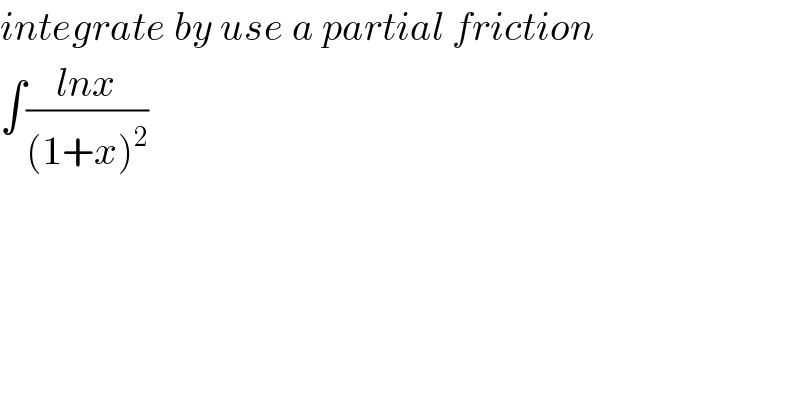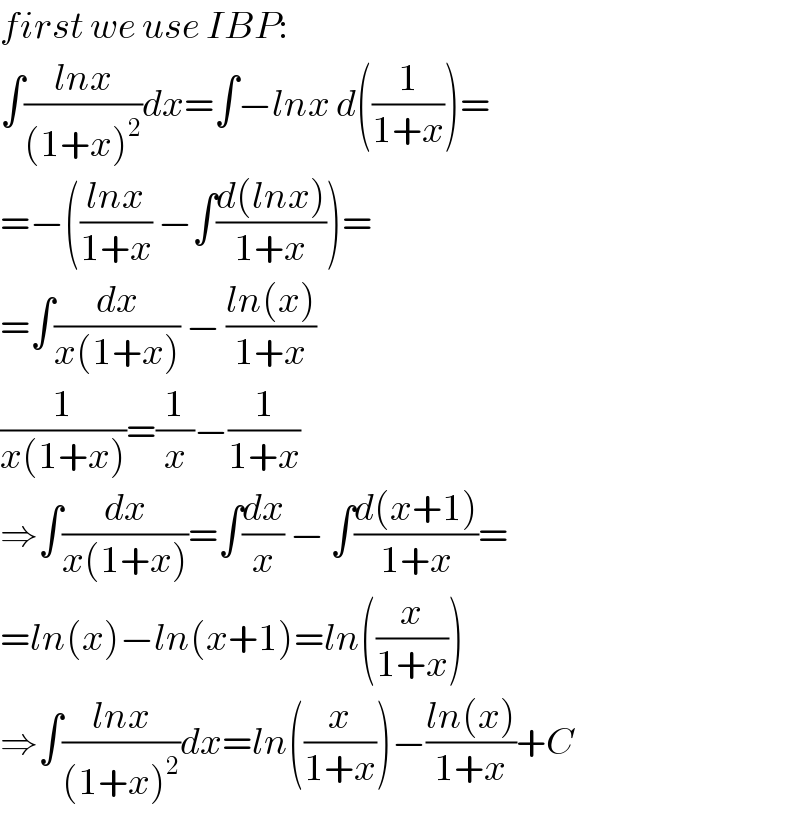
Question and Answers Forum
Question Number 43191 by MASANJA J last updated on 08/Sep/18

Commented by mondodotto@gmail.com last updated on 09/Sep/18

Commented by maxmathsup by imad last updated on 08/Sep/18

Commented by maxmathsup by imad last updated on 09/Sep/18

Answered by alex041103 last updated on 08/Sep/18

